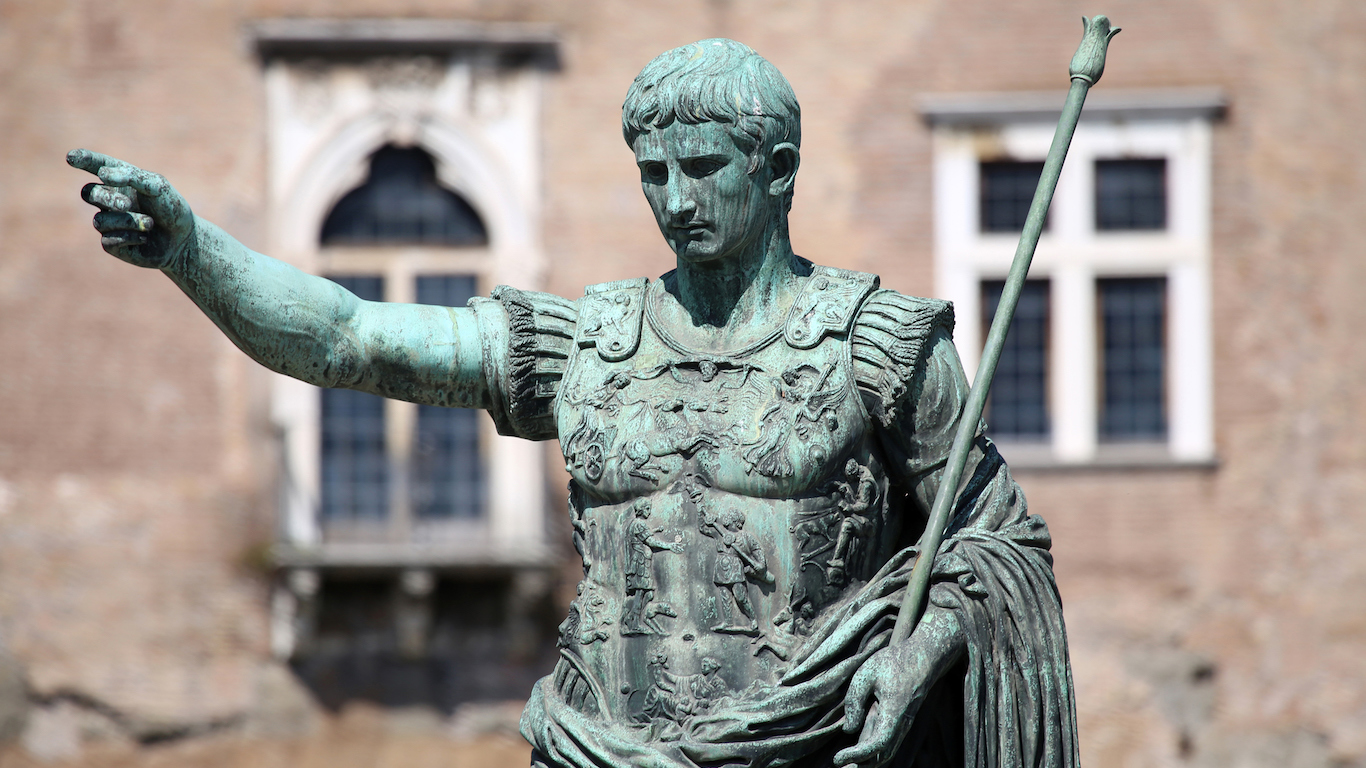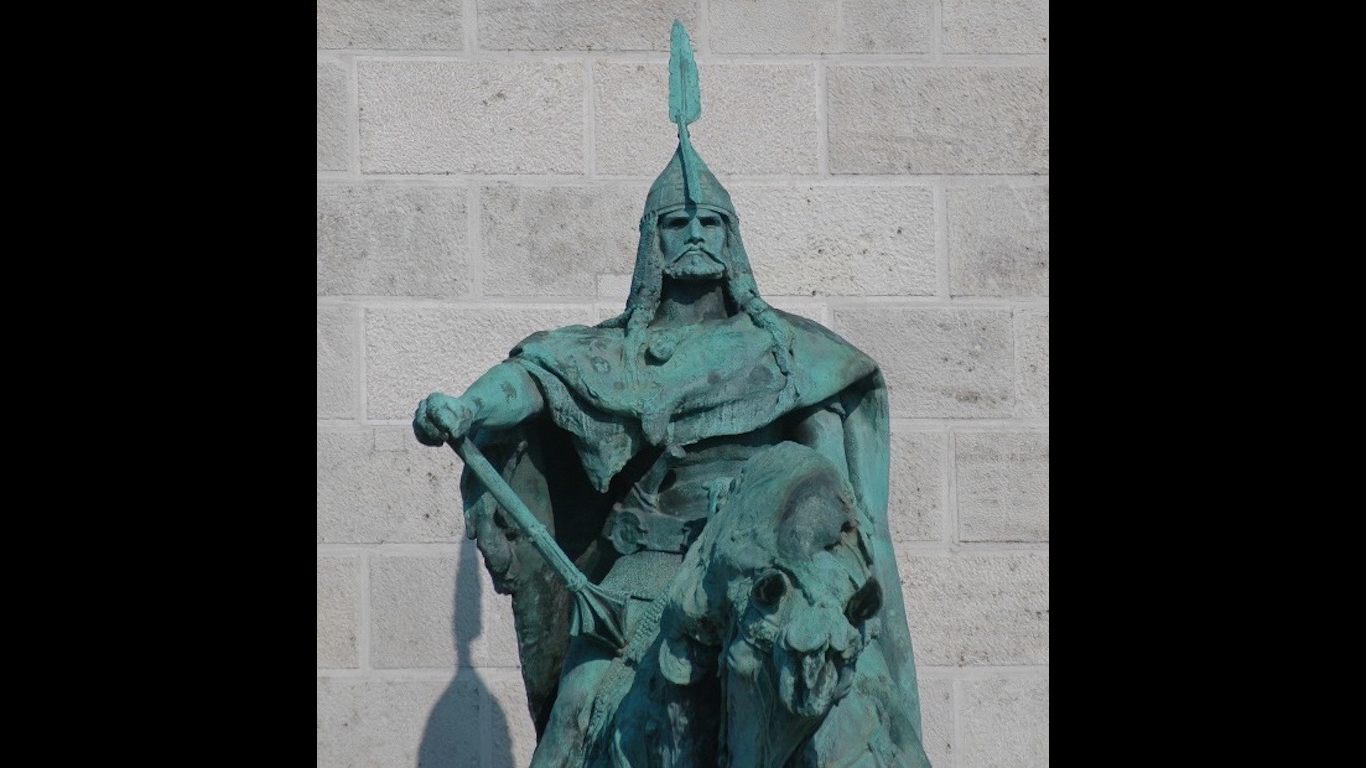50 Most Powerful Leaders of All Time
Julius Caesar #JuliusCaesar


Source: Hulton Archive / Getty Images
11. Julius Caesar> Nation/Territory: Ancient Rome> Title: Dictator> Time in power/Reign: 46-44 B.C.E.
Julius Caesar gained fame as a great military leader who conquered Gaul (mostly modern France) and led military campaigns against Britain. When he returned to Italy, he flouted the senate’s authority by refusing to disband his army before entering Rome. That led to a civil war from which he emerged victorious.
As dictator (originally a temporary position), Julius Caesar supported reforms and oversaw large public works projects in Rome. Shortly after declaring himself dictator for life, he was assassinated by members of the Roman senate on March 15, 44 B.C.

Source: vladacanon / iStock
12. Augustus Caesar> Nation/Territory: Ancient Rome> Title: Emperor> Time in power/Reign: 27 B.C.E.-14 C.E.
Born Gaius Octavius Thurinus, Augustus Caesar, the great-nephew of Julius Caesar, was the first emperor of Rome. Octavian battled both Cleopatra VII and Marc Antony and their armies prior to ascending to power as emperor. Under his rule, the empire was peaceful and prosperous.

Source: Hulton Archive / Getty Images
13. Jesus Christ> Nation/Territory: Present-day Israel> Title: Religious leader> Time in power/Reign: c. 0 B.C.E.-c. 30/33 C.E.
Jesus Christ is the most important figure in Christianity, which with more than 2.3 billion followers is the largest religion in the world. Accounts of the religious leader’s life and ministry are recorded in the New Testament of the Bible.
Jesus began teaching his views and path of humility, compassion, and love for one another. Fearful of the power of his followers, clerics conspired with the Roman rulers to arrest and eventually crucify Jesus.

Source: Hulton Archive / Getty Images
14. Marcus Aurelius> Nation/Territory: Ancient Rome> Title: Emperor> Time in power/Reign: 161-180
Roman emperor Marcus Aurelius is remembered both for his political career and his philosophical pursuits. He ruled during the Parthian Wars and battled against the Germanic tribes. He also authored the famous philosophical work “Meditations,” which outlines his stoic outlook and covers many of his views about life.

Source: muratcalik.com
15. Attila the Hun> Nation/Territory: Hunnic Nation/Territory> Title: King> Time in power/Reign: 434-453
Attila the Hun, leader of a nomadic tribe originating in central Asia, became synonymous with terror and rampage in central and eastern Europe in the fifth century. Attila, called “the scourge of God,” took advantage of the decline of the Roman Empire to conquer vast swaths of Europe. His empire extended from central Asia to modern France. The Hun empire dissolved in the year following Attila’s death in 453.